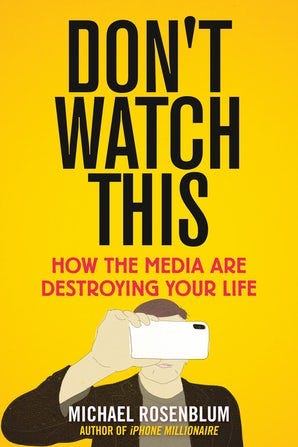
When television was invented, it did not come with an instruction manual.
It was an entirely new medium, and no one really knew what to do with it.
This was particularly true of news. The medium had the potential to be vastly powerful, far more powerful than even radio, which was the dominant medium of its day.
The combination of sound and images brought into people’s homes carried with it the potential to sway tens of millions of people, so who decided what content it would carry and how it would be shaped was a decision that would effect the course of 20th and 21st Centuries.
Britain and the United States took vastly divergent paths in this and that has made all the difference.
In 1922, John Reith, the 33 year old son of a Scottish minister was appointed the first General Manager of the newly formed British Broadcasting Company. Reith had no broadcasting experience. In 1922, no one did. Radio had just been invented. Television, at least as a mass market, was some 25 years in the future.
In 1924, Reith wrote a memo entitled The Policy of the Company. In it, he said, the purpose of The BBC was to bring the best of everything into the greatest number of homes.
In his 1924 book, Broadcast over Britain, expanded on this point of view. “The medium, he wrote, must not become ‘mere entertainment’, catering to the imagined wants of the listener.” Reith’s vision of The BBC was somewhat akin to a living, breathing combination of a University of the Air and The British Museum, brought into every home.
Some 34 years later, Edward R. Murrow would reflect those very sentiments in a speech before the RTNDA. Murrow, then the most respected journalist in America would say,
“This instrument can teach, it can illuminate; yes, and even it can inspire, but it can do so only to the extent that humans are determined to use it to those ends. Otherwise, it’s nothing but wires and lights in a box. There is a great and perhaps decisive battle to be fought against ignorance, intolerance and indifference. This weapon of television could be useful.”
The speech would be the end of Murrow’s career at CBS News.
Unlike The BBC, American broadcasters took a different approach to television in general and television news in particular. They went commercial.
Selling ads against TV shows and against TV news made fortunes for the three men who owned the three American TV networks — Sarnoff, Paley and Goldensohn. They made fortunes for their shareholders.
But the nation paid a price.
Televison revenues then and to this day are based on advertising, and advertising is based on ratings. The higher the ratings, the more ad dollars pour in. This is true for news. So news in America, with very few exceptions, is driven not by journalism but by ratings. The more viewers you can attract and hold, the more money you make. That warps what we might call ‘news judgement’.
You can see this in almost every newscast you see on American TV. NBC Nightly News, for example, opens its nightly newscast with the words Breaking News. Every night, every story is BREAKING NEWS.
And what kind of stories does your local TV news show night after night?
Fires. Murders. Robberies (often caught on security cameras). Car crashes, sports and weather.
Those stories rate.
But like SHARK ATTACKS, they have zero impact on 99.99% of the viewers. Unless you are the poor bastard whose house burned down or who was killed or robbed, these stories mean nothing, aside from their entertainment value. The same reason that you and everyone else slows down to take a look at a car crash on the highway.
Thank God that wasn’t me.
And then move on.
I spent five years working with The BBC. They are different. They are different because they are not dependent upon advertisers for their life blood.
There are a few networks in America that are the same. They should be protected and cherished.
But now, there are those in the UK who want to change The BBC. They want to make it more commercial. They want to end the license fee. For £157.50, or just over $200 a year, you get not only the world’s best broadcaster on television, you get the world’s best broadcaster on radio and their websites. That comes out to 54¢ a day. That is so little that the ¢ sign is not even on keyboards any longer!
Don’t do it!
Just don’t do it.
Do you want to spend the rest of your lives watching MSNBC and Fox News?
To save 54¢?
Be sure to check out my new book, Don’t Watch This! which covers this and a whole lot more.




